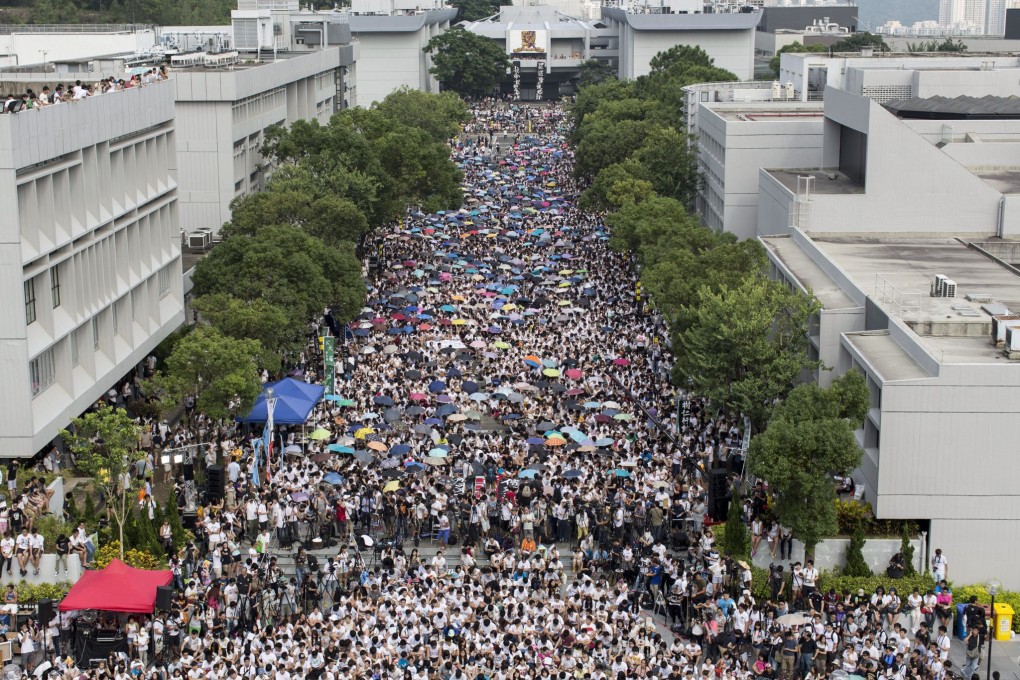My Take | This time, unlike 2003 and 2012, history may not repeat itself
We did it in 2003. We did it again in 2012. We can do it again today. That was pretty much the sentiment I got from the more thoughtful of thousands of students at Chinese University.

We did it in 2003. We did it again in 2012. We can do it again today.
That was pretty much the sentiment I got from the more thoughtful of thousands of students at Chinese University starting a week-long, city-wide boycott of classes for full democracy. The students I spoke to are learning from recent history and hoping it will repeat itself. But they may be drawing a wrong lesson and a false analogy.
In 2003, about half a million people hit the streets to rally against a proposed Article 23 security law. That forced then security chief Regina Ip Lau Suk-yee to resign, and much later, chief executive Tung Chee-hwa too. In 2012, people rallied against the mandatory introduction of national and moral education. That forced the new Leung Chun-ying administration to backtrack and then cancel it. This was despite the scheme having passed through public consultations and received funding in the legislature.
The people's power of 2003 exposed the weak, dysfunctional and borderline-illegitimate nature of the Hong Kong government. The 2012 campaign took people power to a new level by involving young people not just from universities but secondary schools. It gave us Scholarism and a new youth movement. Today, the students believe the fight for full democracy will be longer and more difficult, but they can do it.
But the main difference is this: 2003 and 2012 were arguably domestic affairs, a matter for Hong Kong alone. This time, the central government is one of the key players. In the power politics of China, mandarins from counties, cities and even provinces could backtrack, compromise and even give in. That was what the SAR government did, twice, even though there was no doubt it had tacit approval from Beijing. But the emperor never does.
The central government has invested the full weight of its authority in the National People's Congress Standing Committee's decision. It cannot be seen to compromise; this is beyond losing face. Its own prestige - and therefore its ability to control - is on the line. Unlike the previous fights, the struggle for democracy in Hong Kong has become a direct challenge to the authority of the central government. That sets us on a collision course where it's hard to see a happy outcome.
